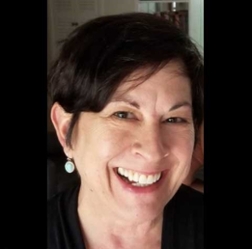
1) Why did you want to be a CAFE fellow? What are you excited about?
I wanted to be a CAFE fellow for teaching writing because helping students develop the strong writing skills they need to succeed in their studies and future work is one of our most important and challenging goals as UMKC faculty. I am excited that CAFE recognized the significance of teaching writing by creating this position. I also am excited that many colleagues share my commitment: nearly 30% of the UMKC faculty who responded to the recent CAFE survey reported that they teach writing in their classes and want to participate in activities to enhance their pedagogy.
2) What do you hope to accomplish this year? Are there any particular goals? What do you think the legacy of your work will be?
My goals for the year are to organize and publicize professional learning opportunities, cultivate the UMKC writing network, and promote research and innovation about the teaching and learning of writing.
Fortunately, I already am part of a group that can help me achieve these goals. I am co-chair with Dr. Thomas Ferrel (UMKC Writing Studio) of the University Writing and Reading Board (UWRB), which comprises representatives from different UMKC units and offices. The UWRB oversees writing-intensive courses and sponsors events as well as a Faculty Learning Community. In addition, the UWRB maintains a website that provides writing pedagogy resources.
During the fall semester, I collaborated with UWRB members to produce “How Do You Teach Writing?: A Multidisciplinary Discussion” that featured short presentations by five professors from different disciplines. We addressed the challenges of teaching writing in large classes, creating assignments that motivate students and helping students learn about disciplinary writing conventions. I also helped the UWRB stage “Quick-Write Workshop: Creating or Revising a Class Writing Assignment in One Hour” led by Dr. Crystal Doss, Director of Composition in the UMKC English Department.
I am currently analyzing the CAFE survey results and working with the UWRB to determine how to deliver more campus-wide faculty workshops on teaching writing and consulting individually with instructors. As an example, a professor in the new School of Humanities and Social Sciences asked the UWRB for assistance in transforming a class they already teach into a writing-intensive course. Dr. Ferrel and I will meet with this professor and create a procedure for responding to such requests. In the process, we will review writing-intensive requirements and talk with the UWRB about possibly revising or adapting these requirements to better serve the needs of students and instructors.
I hope the legacy of my work will be more collaboration across the campus to support the teaching of writing.
3) How does your research or role as faculty member inform your interest and work as a CAFE fellow?
As a researcher of the history of women and rhetoric and a former journalist, I know how challenging it is to write in different genres and for different audiences. As a Teaching Professor in the UMKC Honors Program, I teach undergraduate composition and general education courses that emphasize writing, so I know the challenges that students face and try to help them meet those challenges. I often tell students that my writing ability helped me get every opportunity and job of my career, so there are tangible benefits to this hard work. And we all are in it together, helping each other grow as writers.